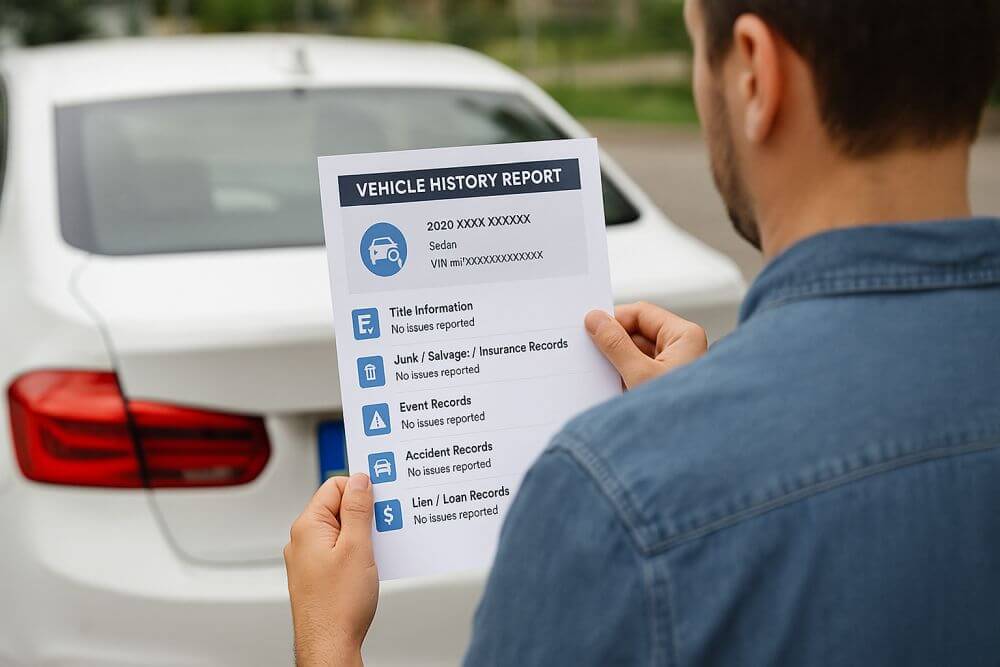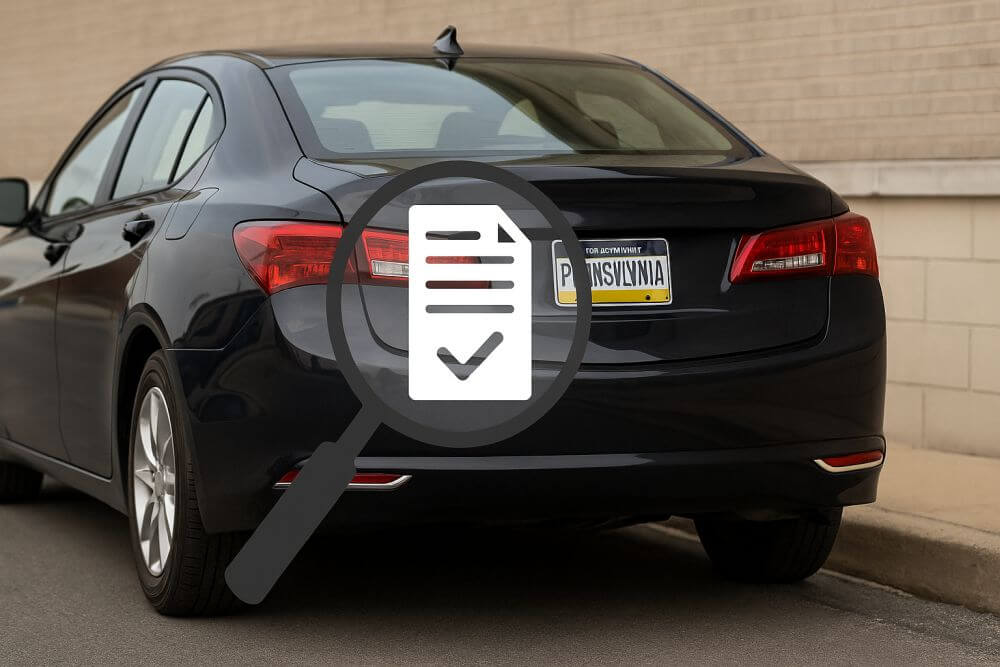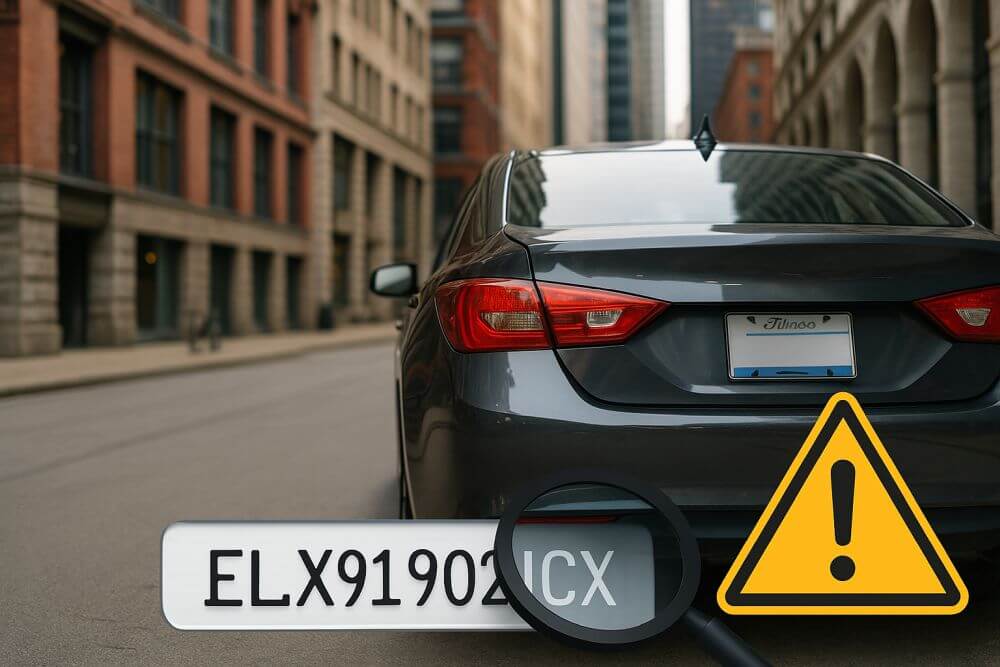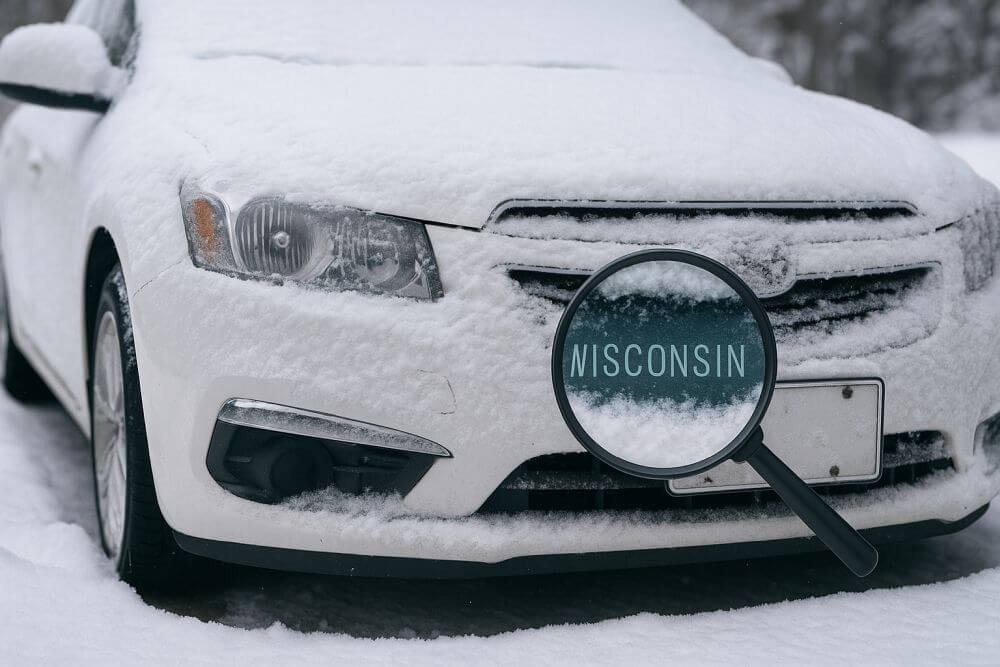When buying a used car, it’s easy to get caught up in the excitement of a great deal, a clean interior, or low mileage. But underneath the surface, a vehicle’s past could hide important details that the seller might not mention. This is where a license plate lookup becomes an invaluable tool.
Whether you’re purchasing from a dealership or a private seller, running a plate lookup gives you quick access to critical vehicle information—including accident history, title issues, and potential red flags. And the best part? With tools like VinCheckPro.com, you can do this for free—no VIN required.

What Is a License Plate Lookup?
A license plate lookup is a method of retrieving vehicle history and records by entering a car’s license plate number (and the state it’s registered in). Instead of requiring a Vehicle Identification Number (VIN), a plate lookup uses public and commercial databases to uncover data about the vehicle tied to that tag.
This type of search is especially helpful when:
- You don’t have easy access to the VIN
- You want a fast overview of a car’s history before investing in a full report
- You want to confirm what the seller is telling you
Why It Matters When Buying a Used Car
Buying a used car comes with its fair share of unknowns. Even a seemingly clean car can have a history of flood damage, title fraud, or prior accidents. Relying on a seller’s word alone can be risky—especially in private-party sales.
A license plate lookup can help you:
- Verify the vehicle’s title status (clean, salvage, rebuilt, junk)
- Check for previous accidents or structural damage
- Detect possible odometer rollback
- Identify if the vehicle was previously used as a rental or fleet car
- Uncover past recalls or liens
It’s a quick, non-invasive way to learn more about the car you’re considering before diving deeper or putting down any money.
How Does License Plate Lookup Work?
Most plate lookup tools convert the license plate into a VIN using internal data sources and databases. Once the VIN is retrieved, it’s run through various public and private records to generate a vehicle history report.
Here’s what happens step-by-step:
- You enter the plate number and select the state
- The system locates the corresponding VIN
- A report is compiled using data from sources like:
- State DMV records
- Auto auctions
- Insurance companies
- Recall registries (like NHTSA)
- Title and salvage databases
Some tools are limited or charge a fee to view the results. However, VinCheckPro.com offers 100% free vehicle history reports using either a license plate or VIN, with no account required.
What Are the Benefits of Using a License Plate Lookup?
No VIN? No Problem
Sometimes the VIN isn’t available or easily visible—especially in online listings or classified ads. Plate lookup gives you an alternative way to learn more about the vehicle.
Quick Vehicle Verification
In just a few seconds, you can confirm basic facts: year, make, model, title history, and whether the car has been in any reported accidents.
Helps You Avoid Scams
Title-washing, odometer fraud, and flood-damaged vehicles are more common than most people think. A license plate lookup can flag these issues before they cost you thousands.
Supports Safer Private Sales
Private-party transactions can be riskier than buying from a dealer. Running a quick plate check helps level the playing field when you’re negotiating with an individual seller.
Are There Any Limitations?
While license plate lookups can be extremely helpful, there are a few things to keep in mind:
- Personal information is protected
You won’t receive the owner’s name, address, or contact info—that’s protected by law under the Driver’s Privacy Protection Act (DPPA). - Some records may be incomplete
Not all accidents or repairs are reported, especially if the work was paid for privately or done without insurance involvement. - Free tools may vary in depth
Some free lookups offer only partial data. VinCheckPro, however, offers one of the most comprehensive free vehicle history reports available online.
Common Scenarios Where Plate Lookup Helps
1. You’re Buying from a Seller Online
Found a car on Facebook Marketplace or Craigslist but no VIN is listed? Just grab the license plate number from the photos and run a check.
2. You Want to Double-Check What a Seller Told You
Some sellers exaggerate or omit facts. A license plate lookup can confirm whether the title is clean and if the mileage lines up.
3. You’re Considering a Car Seen in Public or at an Auction
Sometimes, you’re browsing and see a car you’re interested in—without the chance to talk to a seller. Plate lookup tools give you a way to investigate before making a move.
Frequently Asked Questions
Can I get the owner’s name from a license plate lookup?
No. Personal information is protected under federal privacy laws. Legitimate plate lookup tools will only provide vehicle-related data—such as title history, accident records, and specifications.
Is it legal to look up a license plate?
Yes—as long as it’s for a permitted reason, such as checking a used vehicle before purchase. You must not use the data for harassment, stalking, or marketing without consent.
Can I use a license plate lookup to get the VIN?
Yes. Many services—including VinCheckPro—can return the VIN associated with a plate number as part of the lookup.
Does a license plate lookup replace a full vehicle history report?
It depends on the tool. A good plate lookup like VinCheckPro’s offers a complete vehicle history report based on the retrieved VIN—making it a strong all-in-one option.
Final Thoughts: A Smart Move for Smart Buyers
A license plate lookup is a simple but powerful way to verify a vehicle’s background and protect yourself from fraud or costly surprises. Whether you’re buying from a dealership or a private party, it’s a fast and legal way to uncover critical information before signing anything.
And with VinCheckPro, you can do it 100% free—no VIN required.
Ready to run your own check?
Use the free license plate lookup tool and get instant access to title history, accident records, and more.


